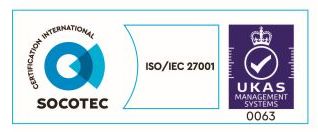If you are the admin of a Facebook business account, then you may have received a notification recently that talks about how messenger is changing. The update is titled “messaging businesses is the new normal” and discusses how consumers are increasingly turning to messaging apps to interact with their favourite brands. The page then goes on to provide some key insights and gives tips on how page owners can get started. This notification also comes just a few months after the big announcement that Facebook is in the early stages of a Messenger, Instagram and WhatsApp merger that would allow users to communicate via cross-platform, which is expected to launch in 2020. What is clear is that Facebook’s future is highly focused on both messaging and business to consumer communication. How this will impact both their platform(s), businesses and consumer experience, we do not yet know. However, we can look at some of the pros and cons of their announcement from a business standpoint.
Facebook’s push for messaging is a win for businesses purely based on the number of active users across its platforms. At the moment, Facebook and WhatsApp both have around 1.5 billion daily active users, whilst Instagram also has 500 million daily active users. Therefore, providing companies with access to arguably the largest audience and user base in the world, all for free. Whilst most businesses will already have an existing page with regular content and maybe even an established chatbot, the announcement that Facebook’s future attention will be on businesses can only be a good thing going forward.
The second benefit of Facebook’s recent notification update is that it will hopefully bring more attention to the fact that consumer preferences are changing. Gone are the days when consumers would purchase everything that they need by visiting shops. Instead, we now have much more choice and many different ways to communicate with brands (telephone, text message, social media, chatbot, email etc.). Hopefully, new businesses owners will be able to learn some insights into the benefit of providing customers with new ways to communicate besides telephone calls. Here are the key statistics that Facebook provided in their post:
Another benefit of Facebook’s announcement to consider is that collecting data can sometimes be difficult. Customers do not always want to provide information to businesses when they are visiting a website or making a purchase. However, customers may be more inclined to like a page on social media platforms such as Facebook and Instagram. For B2C companies, building up likes should be relatively easy providing that the content you post is interesting and relevant. Once you have built a following then you can add Messenger, WhatsApp and Instagram to your omnichannel communication strategy which will only benefit you going forward.
Whilst Facebook’s future plans for business messaging is definitely exciting and offer great potential to businesses, it is also important to discuss some of the cons. Firstly, let’s use SMS marketing as a comparison since both options provide businesses with a two-way communication platform to speak to consumers. The major disadvantage of using social media over SMS marketing is that not all mobile phone users have a social media account. In 2019, the total number of mobile phone users is expected to reach around 4.68 billion. When you compare this to the numbers provided earlier, it is evident that a large percentage of your audience would be forgotten if you opted to use Messenger, WhatsApp & Instagram as your main communication platforms.
Furthermore, just because consumers are using social media it doesn’t mean that they follow or like your company page. According to the Kentico Digital Experience Survey, 68% of Facebook users don’t pay attention to brands they like. On top of this, consumers who do follow company pages don’t necessarily engage that much. The average engagement rate for a business Facebook post is just 3.91%. Therefore, using Facebook as a messaging platform may be great for multinational corporations such as Coca-Cola, MacDonald’s or Apple, but it may not work so well for a local business or B2B companies with a low number of likes or followers.
fering 10% off (remember rule number one above) in a flash clearance sale. This reinforces that his discount is temporary and his customers should take advantage while stocks last.Another factor to consider is that consumers still appreciate interaction, with brick-and-mortar sales still accounting for 82% of all retail purchases in August 2018 for example. Therefore, whilst Messenger, WhatsApp and Instagram give business with a great communication tool, it is unrealistic to expect a large number of customers to flock to these platforms to start making purchases. A recently published Forbes article states that in the not too distant future, consumers will be purchasing important products such as cars via messenger, with the ability to select things like make, model, colour and trim etc. Whilst this process sounds extremely exciting and isn’t unachievable, it is still very unlikely that customers will entrust a chatbot when making a purchasing decision on a product as valuable as a family car. Instead, consumers will probably continue to visit car dealerships and garages in person for the foreseeable future.
To summarise, Facebook’s messaging plans and their recent notification update on business messaging are both very promising. They provide companies with the opportunity to add new communication methods into your omnichannel marketing strategy and a focus on business has the potential to help businesses generate more conversions through Facebook’s platforms. However, it is important not to get carried away. Not all companies will see a major increase, unfortunately. As mentioned earlier, small companies and B2B’s could still find it difficult to use the platform as a legitimate source of revenue (industry dependent). Finally, there are still other alternatives, one being SMS marketing, that will allow you to reach a wider and more invested audience that have a legitimate purchasing interest.


Hi, I'm Josh, Business Development Executive at Reach Interactive. I have a background in sales and marketing and I love interacting with different industries both domestically and worldwide, and seeing how they adapt to the ever-changing consumer.
TAKING CARE OF MILLIONS OF MESSAGES EVERY SINGLE DAY - TRY US FREE
Use our calculator to work out your price (£) per credit below:
(1 Credit = 1 × 160 character text message).

PARTNER : MEGA FESTIVALS




©2002-2025 All rights Reserved. Reach Interactive© is a registered trademark of Reach-Data Ltd is registered in the UK and Wales. Registration Number: 04602161. Privacy Policy Terms and Conditions